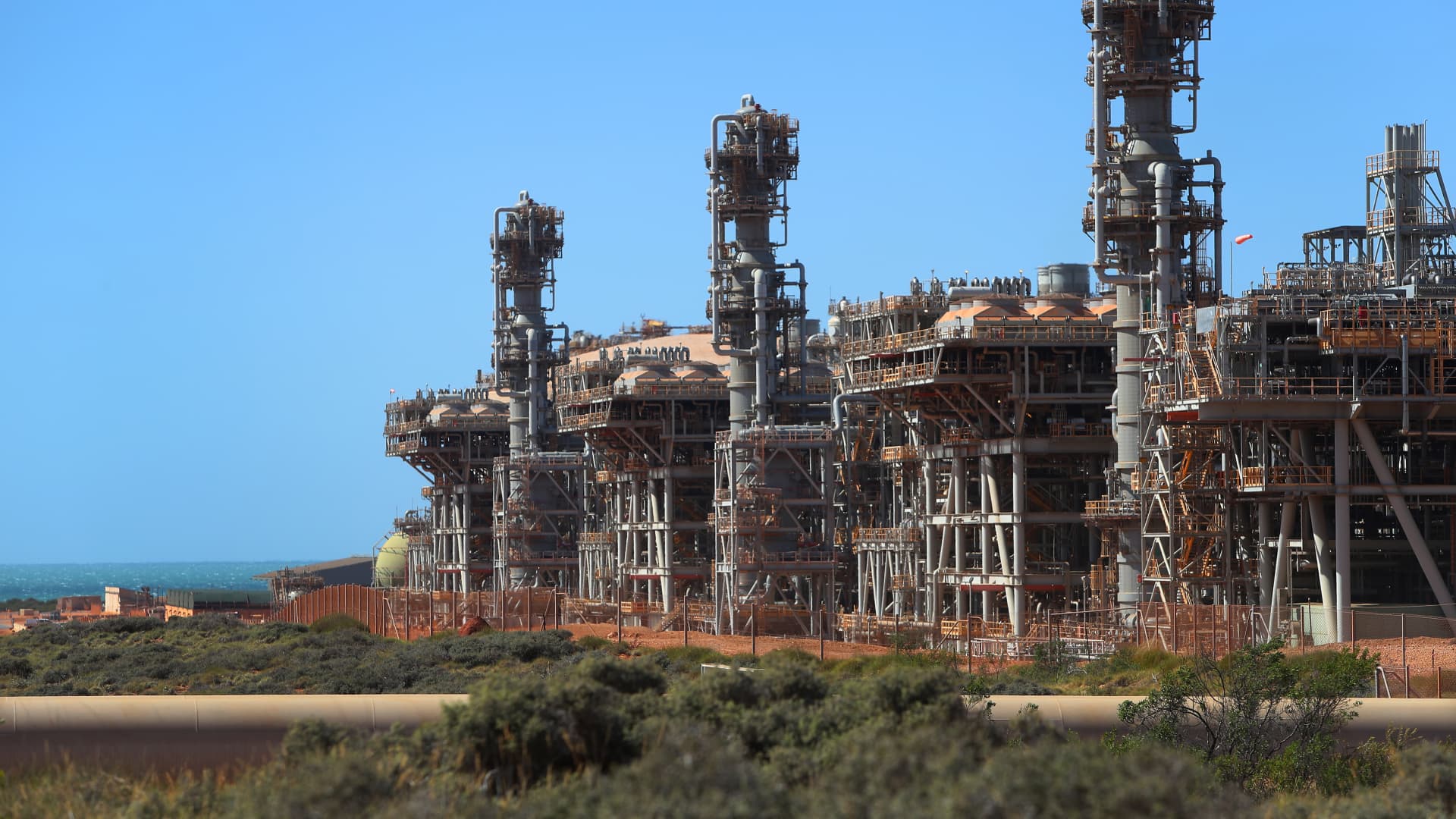- Workers at Chevron’s two liquefied natural gas (LNG) projects in Australia plan to escalate industrial action from Thursday, their union said.
- This could include anything from a total strike to hours-long work stoppages.
- Such industrial action could increase the risk of disrupted output.
Workers at Chevron’s two liquefied natural gas (LNG) projects in Australia plan to escalate industrial action from Thursday to anything from a total strike to hours-long work stoppages, their union said, increasing the risk of disrupted output from facilities accounting for over 5% of global supply.
Workers at the Gorgon and Wheatstone facilities have been stopping work briefly for the past six days, after talks with Chevron over wages and working conditions broke down.
The unions had said they would ratchet the pressure on the company from Thursday, possibly by completely stopping work. A union official said they were now going to review what action to take every 12 hours.
Research group EnergyQuest estimated revenue at risk for Chevron and partners from the strikes at about A$76 million ($49 million) per day, though it said not all of that revenue would be lost as some cargoes may be deferred to a later date.
“There is a marked escalation of protected industrial action today, however, it is in various one-hour blocks,” said the union official, who declined to be named as he was not authorised to speak with media.
“We are strategically assessing the protected industrial action we need to take every 12 hours and will continue to escalate at times which align with our industrial strategy.”
Domestic supplies will not be impacted, the union said.
Chevron had said it would continue to take steps to maintain operations if any disruptions occur, without giving details.
Australia is the world’s biggest LNG exporter and its main buyers are in Asia. Traders anticipate any cuts to supplies would send Asian buyers competing with Europeans for cargo, spurring spot price volatility in the European gas market.
Dutch and British wholesale gas prices rose slightly on Wednesday, ahead of the strike escalation.
Supply risks
In a bid to stop the industrial action, Chevron is pursuing an untested legal strategy and has applied to the Fair Work Commission, Australia’s industrial arbitrator, for an “intractable bargaining” declaration. If granted, it would end the strikes and allow the tribunal to dictate an agreement.
The commission will hold its first, and so far only, hearing on Sept. 22, and a decision is expected to be made soon after.
Goldman Sachs said in a note that any 24-hours a day strikes will raise supply risks, although chances of a long outage that could fuel a lengthy spike in gas prices were low.
“This is both because of the potentially large revenue losses to Chevron…and because of potential regulatory intervention,” Goldman analysts said.















